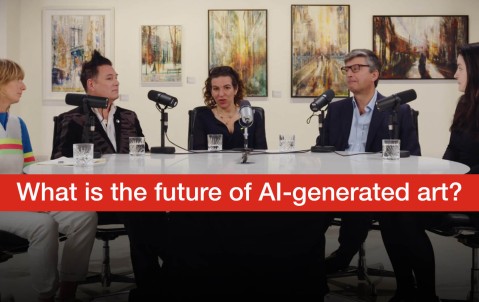
Chalani joined the actuarial graduate programme and tells us a little bit about her experience.
Tell us about your time so far…
As an actuarial graduate on the Hiscox graduate programme, I worked my way through three rotations – starting in Capital Management, then moving into the Pricing and Reserving teams - giving me the opportunity to get in-depth insight into how the business operates, as well as sharpening up my technical skills.
In the Capital Management team one of my main duties was being the Lead Broker Credit Risk Modeller, and as a fresh graduate it was a great chance to showcase my skills and take on some responsibility. My role involved conducting the relevant meetings and gathering required data, making any improvements to the modelling procedure and ensuring all governance and documentation was completed thoroughly.
During my rotation in the pricing team within the Marine, Energy and Specialty division I worked on building an API data solution for our Space Underwriters who insure things like satellites and rocket launches! I had to quickly get up to speed with the current technology as well as learning and integrating new software to build the best product possible for the project.
As an actuary, what made you choose the insurance industry?
I completed an integrated Master's in Mathematics and Statistical Science, and I wanted to work in a role where I could use my technical skills but I also wanted to learn how a business model works and what skills are needed to run a successful business. The actuarial career path seemed like a great fit for what I was looking for.
Specialty insurance is a special industry. Working for one of Lloyd’s largest syndicates, learning about the history of the industry and Hiscox is fascinating. There are so many kinds of products being insured, ones I had never even thought of – and so many exciting opportunities especially for actuaries involved in pricing work.
A good work-life balance is one of the main reasons I chose to follow actuarial science in general insurance. Of course, there are busier times at work, but the ability to work flexibly was invaluable during exams and I felt so supported by my team and Hiscox.
How did the programme help your skills and personal development?
An actuarial analyst’s role revolves around large data sets, so it is imperative that you have good data wrangling and analysing skills. I received a blend of on-the-job learning and technical training sessions – something I prefer instead of purely tutorial-based learning. In addition to this, I pushed myself to develop my Excel, VBA, R and SQL skills.
Developing good interpersonal skills has also been key. Working in a team full of people from various backgrounds and experiences, means that you need to learn to adapt quickly and work with different views and opinions. Putting in the time and effort to make good relationships with my colleagues has definitely been worthwhile, and really helps to make the team and business thrive!
Do you have any advice for anyone looking to start a career as an actuary?
Be proactive! As a young person entering the industry, one of the best things to do is to reach out to people and ask them questions about their journey, their role, etc. If you don’t know where to start, start with LinkedIn. It will widen your network and allow you to explore the options that are out there. The more you explore the more confident you will be about choosing what’s right for you. Personally, I love getting to know other people and what they do because it keeps me inspired and pushes me to be more creative with my work.
One last thing that I live by, is not taking any opportunities for granted. Whether it’s a coffee chat or a final-stage interview, always try to show how much you care about what you do or want to do, by talking about your past experiences or any ideas that you have. It will show how passionate you are about your career, and it will only open more doors for you.
What did you enjoy most about your time on the graduate programme at Hiscox?
It was definitely meeting new people. The rotations are long enough to work with your team mates on decent projects, which gives you the opportunity to bond with them and create valuable and genuine connections. Through my rotations I was given the chance to build a network of people across the business. Getting to know such a wide range of people is so important because it’s opened my eyes to the many different opportunities and choices out there in the world.
Find out more about our Graduate programme - UK


